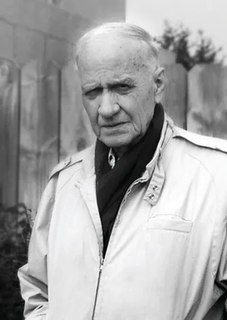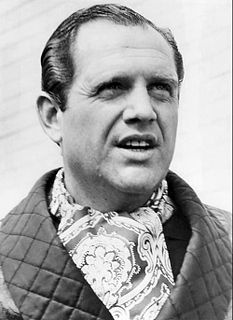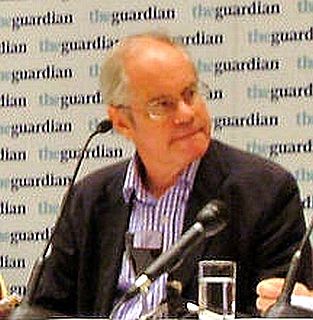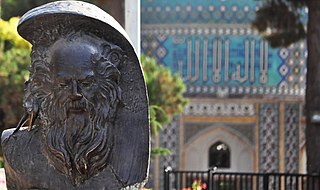A Quote by Charles Portis
On his deathbed he asked for a priest and became a Catholic. That was his wife's religion. It was his own business and none of mine. If you had sentenced one hundred and sixty men to death and seen around eighty of them swing, then maybe at the last minute you would feel the need for some stronger medicine than the Methodists could make.
Related Quotes
For the Jesus Revolutionaries, the answer was clear: Jesus would not be out waging "preventative" wars. Jesus would not be withholding medicine from people who could not afford it. Jesus would not cast stones at people of races, sexual orientatons, or genders other than His own. Jesus would not condone the failing, viperous, scandalplagued hierarchy of some churches. Jesus would welcome everyone to his his table. He would love them, and he would find peace.
A thousand for his love expired each day, And those who saw his face, in blank dismay Would rave and grieve and mourn their lives away- To die for love of that bewitching sight Was worth a hundred lives without his light. None could survive his absence patiently, None could endure this king's proximity- How strange it was that man could neither brook The presence nor the absence of his look!
Jesus never tried to hide his loneliness and dependence on other people. He chose his disciples not as servants but as friends. He shared moments of joy and grief with them, and asked for them in times of need. They became his family, his substitute mother and brothers and sisters. They gave up everything for him, as he had given up everything for them. He loved them, plain and simple.
Was his life nothing? Had he nothing to show, no work? He did not count his work, anyone could have done it. What had he known, but the long, marital embrace with his wife. Curious, that this was what his life amounted to! At any rate, it was something, it was eternal. He would say so to anybody, and be proud of it. He lay with his wife in his arms, and she was still his fulfillment, just the same as ever. And that was the be-all and the end-all. Yes, and he was proud of it.
Men and women make their own beauty or their own ugliness. Sir Edward Bulwer Lytton speaks in one of his novels of a man "who was uglier than he had any business to be;" and, if we could but read it, every human being carries his life in his face, and is good-looking or the reverse as that life has been good or evil. On our features the fine chisels of thought and emotion are eternally at work.
When a man sought knowledge, it would not be long before it could be seen in his humbleness, his sight, upon his tongue and his hands, in his prayer, in his speech and in his disinterest (zuhd) in worldly allurements. And a man would acquire a portion of knowledge and put it into practice, and it would be better for him than the world and all it contains - if he owned it he would give it in exchange for the hereafter.
All knowledge is of itself of some value. There is nothing so minute or inconsiderable, that I would not rather know it than not. In the same manner, all power, of whatever sort, is of itself desirable. A man would not submit to learn to hem a ruffle, of his wife, or his wife's maid; but if a mere wish could attain it, he would rather wish to be able to hem a ruffle.
In one horrible moment the last piece of the prophecy became clear. So bid him take care, bid him look where he leaps, As life may be death and death life again reaps. He had to leap, and by his death, the others would live. That was it. That was what Sandwich had been trying to say all along, and by now he believed in Sandwich. He put on a final burst of speed, just like the coach taught him in track. He gave everything he had. In the last few steps before the canyon he felt a sharp pain in the back of his leg, and then the ground gave way under his feet. Gregor the Overlander leaped.
Taro came into the room, strands of hair flying free of the tie at the back of his skull, sweat plastering his cream-colored shirt against his chest and back. I wished I had an artist's skill, that I could make renderings of him in all his states of beauty. He would never want to look at them, or even know about them. I would just like them for myself. Maybe he would want to see them when he was much older, and beautiful in a different way.
We find it hard to picture to ourselves the state of mind of a man of older days who firmly believed that the Earth was the centre of the Universe, and that all the heavenly bodies revolved around it. He could feel beneath his feet the writhings of the damned amid the flames; very likely he had seen with his own eyes and smelt with his own nostrils the sulphurous fumes of Hell escaping from some fissure in the rocks. Looking upwards, he beheld ... the incorruptible firmament, wherein the stars hung like so many lamps.
I discovered several never-failing signs by which one might know when a man wished to take another wife. He would suddenly 'awaken to a sense of his duties'; he would have serious misgiving as to whether the Lord would pardon his neglect in not living up to his privileges; he would become very religious, and would attend to his meetings ... which seemed just then to be very numerous, and in various other ways he would show his anxiety to live up to his religion.
When father was younger than me he came to New York to be in musicals and was in a number of them. But he, at that time in his life, didn't feel he could fully commit to a creative life - he had this voice in the back of his head that said, "I need to make money." So that propelled him to open up an ice cream parlor, which then spawned into a number of different food businesses and took over his life for 20 years.



































